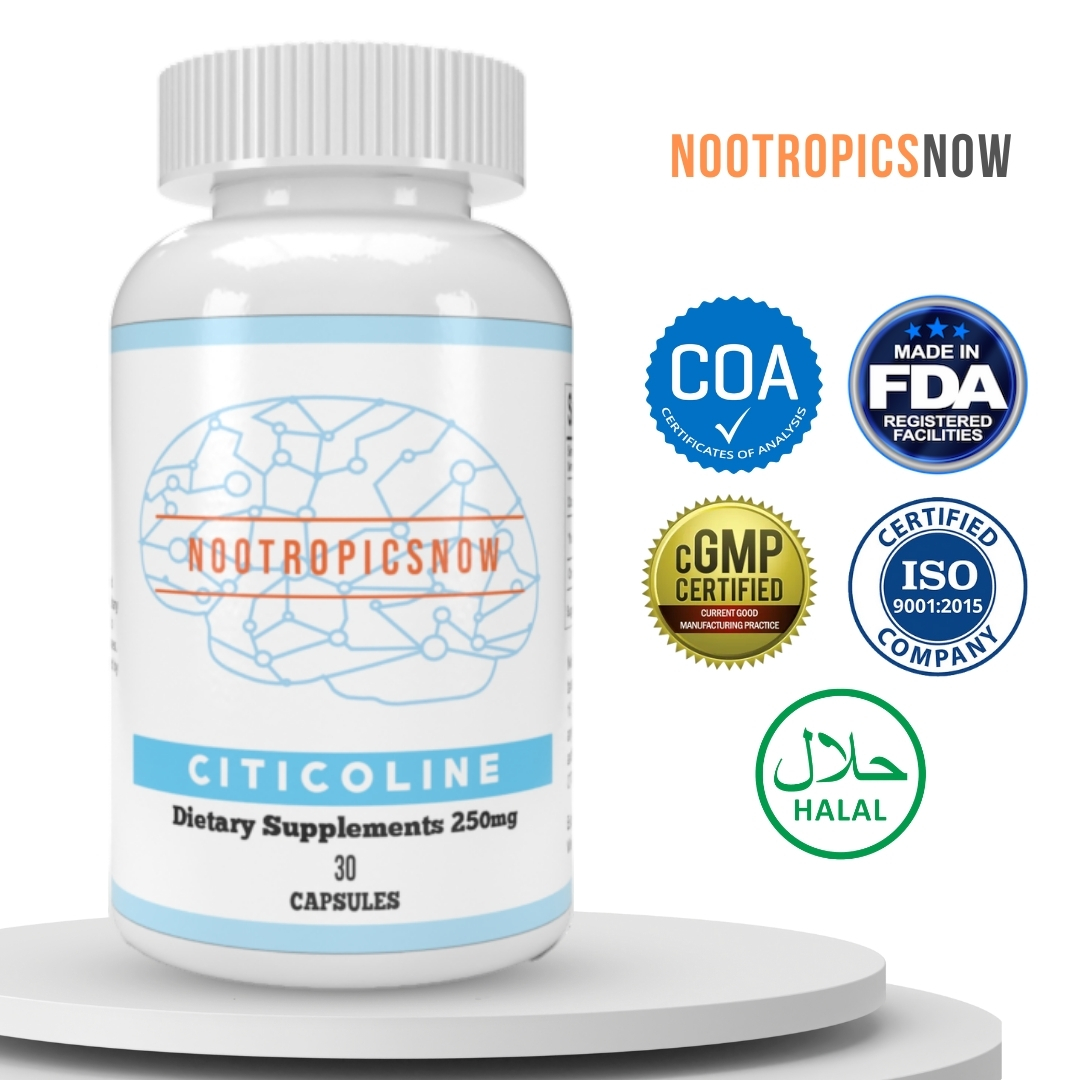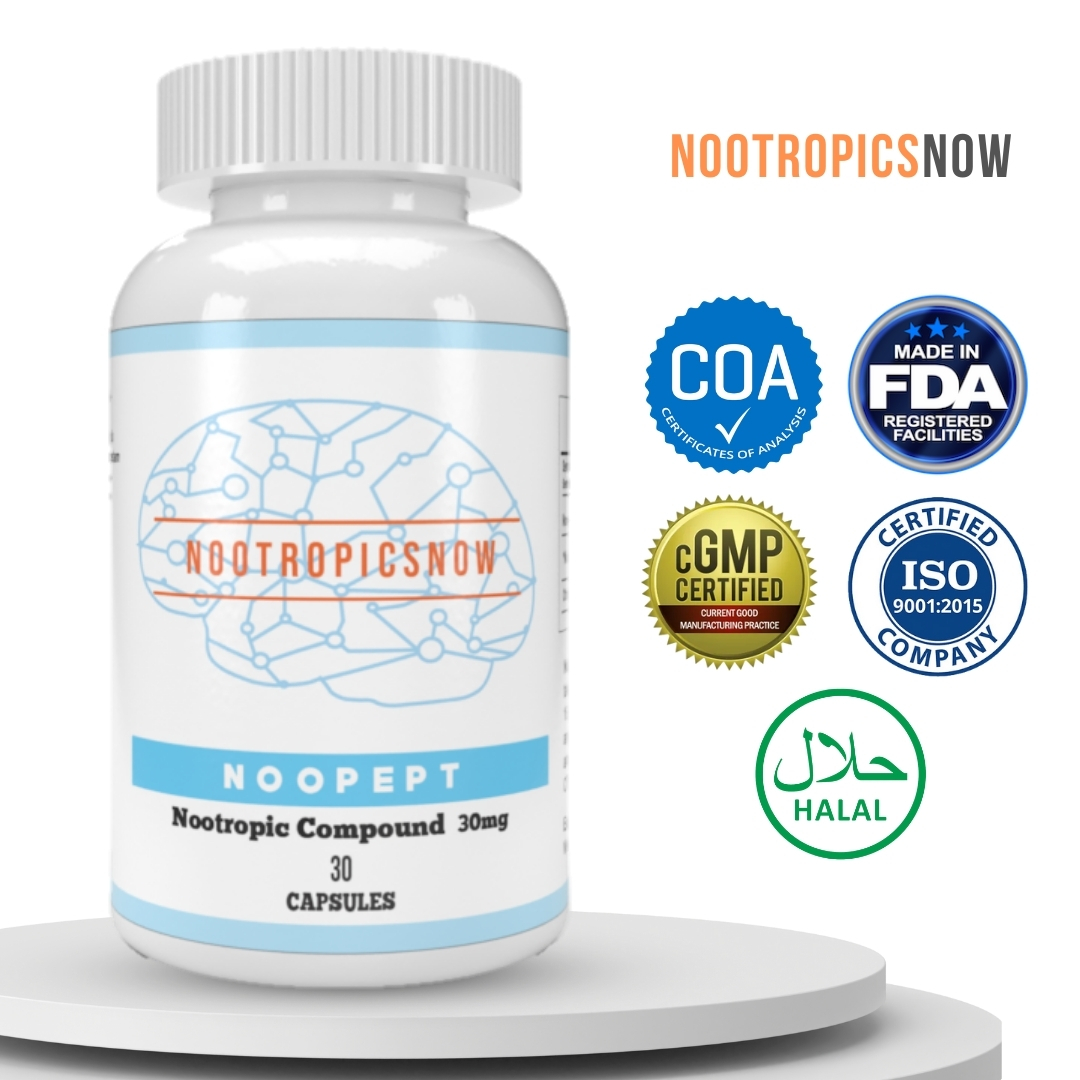Best Nootropic for Memory Retention

Best Nootropic for Memory Retention: Enhancing Your Cognitive Capabilities

Memory retention is a critical cognitive function, influencing learning, recall, and overall mental performance. In today’s fast-paced world, improving memory has become a significant priority for students, professionals, and anyone seeking to optimize their cognitive abilities. Nootropics, often called “smart drugs,” have gained popularity as potential memory enhancers. But, which nootropic truly reigns supreme when it comes to bolstering memory retention? This section delves into the most effective nootropics backed by scientific evidence and user experiences, exploring their mechanisms of action, benefits, and potential drawbacks.
Understanding Memory and Nootropics
Before diving into the specifics, let’s briefly define memory and understand how nootropics work. Memory involves multiple stages, including encoding (processing new information), storage (maintaining information over time), and retrieval (accessing stored information). Each of these stages is critical for effective memory retention.
Nootropics are substances that can potentially enhance cognitive functions, including memory, focus, attention, and motivation. They achieve this through various mechanisms, such as increasing neurotransmitter levels, improving cerebral blood flow, protecting neurons from damage, and enhancing synaptic plasticity. Therefore, selecting the right nootropic involves understanding how it impacts these cognitive processes.
Top Nootropics for Memory Retention
Several nootropics have demonstrated promise in enhancing memory retention. Each of them has a different mechanism of action and varying levels of scientific support. Therefore, understanding the nuances of each substance is important before choosing the right option for you.
1. Bacopa Monnieri: The Ancient Memory Booster
Bacopa Monnieri is an herb used in traditional Ayurvedic medicine for centuries, revered for its cognitive-enhancing properties. Indeed, several studies suggest its efficacy in improving memory retention.
Mechanism of Action: Bacopa Monnieri’s primary mechanism involves enhancing synaptic communication in the brain. Specifically, it appears to increase the growth of dendrites, the branching extensions of nerve cells that receive signals from other neurons. This increased dendritic branching enhances the efficiency of neural transmission, improving memory formation and recall. Furthermore, Bacopa Monnieri also boasts antioxidant properties, protecting brain cells from oxidative stress, which can impair cognitive function. This antioxidant activity is crucial for maintaining long-term brain health.
Benefits: Research indicates that Bacopa Monnieri can significantly improve both short-term and long-term memory. For example, a study published in the Journal of Alternative and Complementary Medicine found that Bacopa Monnieri supplementation improved visual processing speed, learning rate, and memory consolidation in healthy adults. In addition, users often report improved focus, reduced anxiety, and enhanced overall cognitive performance.
Dosage: The typical dosage of Bacopa Monnieri ranges from 300 to 450 mg per day. It is best to start with a lower dose and gradually increase it to assess tolerance and minimize potential side effects, such as gastrointestinal upset.
`markdown
Best Nootropic for Memory Retention
Understanding Memory Retention and Its Importance
Memory retention, simply put, is the brain’s capacity to store and retrieve information. This process is fundamental to learning, skill acquisition, and navigating daily life. Efficient memory retention enables us to recall facts, events, and experiences, contributing to a richer, more meaningful existence. It’s not merely about remembering; it’s about connecting past knowledge with present circumstances to make informed decisions and solve problems effectively. Good memory retention supports academic success, professional growth, and personal development.
The Biological Basis of Memory
Memory formation involves complex processes at the neural level. Neurotransmitters, such as acetylcholine and glutamate, play crucial roles in synaptic plasticity, strengthening the connections between neurons. This strengthening is essential for the encoding and consolidation of memories. Brain regions like the hippocampus and amygdala are critical for forming and retrieving memories, particularly those associated with emotions. Therefore, supporting these biological processes is key to optimizing memory retention. Furthermore, factors like sleep, nutrition, and stress levels significantly impact memory formation and recall.
Factors Affecting Memory Retention
Many factors can negatively impact memory retention. Stress, anxiety, and depression can disrupt the brain’s ability to encode and consolidate memories effectively. Poor sleep quality and sleep deprivation also impair cognitive function, leading to memory deficits. Additionally, nutritional deficiencies, particularly in essential vitamins and minerals, can affect brain health and memory performance. Furthermore, age-related cognitive decline can naturally impact memory retention. Certain medications and medical conditions can also contribute to memory problems. Identifying and addressing these factors are crucial for improving and maintaining optimal memory function.
Nootropics: Aiding Memory Retention
Nootropics, often called “smart drugs” or cognitive enhancers, are substances designed to improve cognitive functions, including memory, attention, and learning. These substances can be natural or synthetic and work through various mechanisms to support brain health and enhance cognitive performance. Many nootropics target neurotransmitter systems, while others boost blood flow to the brain or protect neurons from damage. Consequently, they hold promise for improving memory retention and overall cognitive function. However, it’s important to select nootropics wisely and use them responsibly, considering potential side effects and interactions.
How Nootropics Enhance Memory
Nootropics work through a variety of mechanisms to improve memory. Some, like Huperzine A, increase the levels of neurotransmitters like acetylcholine, crucial for memory formation and retrieval. Others, such as Ginkgo Biloba, enhance blood flow to the brain, ensuring that neurons receive sufficient oxygen and nutrients. Still, others, like Lion’s Mane Mushroom, promote the growth and repair of brain cells, supporting long-term cognitive health. By targeting these different pathways, nootropics can enhance various aspects of memory function. As such, these substances can make information encoding, storage, and retrieval more efficient.
Here is a product that could support cognitive health over time:

View Product
Safety and Efficacy of Nootropics
The safety and efficacy of nootropics vary significantly. Some nootropics, like caffeine and L-theanine, are generally considered safe with minimal side effects when used responsibly. On the other hand, some synthetic nootropics may have more significant side effects and potential interactions with other medications. It’s crucial to research any nootropic thoroughly before using it, considering potential risks and benefits. Additionally, individual responses to nootropics can vary, so it’s essential to start with a low dose and monitor your reaction. Consulting a healthcare professional is always recommended, especially if you have underlying health conditions or are taking other medications.
Top Nootropics for Memory Retention
When it comes to enhancing memory retention, several nootropics stand out for their efficacy and scientific backing. Here are some of the best nootropics for memory retention, along with their mechanisms and benefits:
1. Bacopa Monnieri
Bacopa Monnieri is a herb used in traditional Ayurvedic medicine and is known for its cognitive-enhancing properties.
Mechanism: Bacopa Monnieri influences the brain’s neurotransmitters, enhancing memory retention and learning capabilities. It boosts cerebral blood flow, which is crucial for delivering oxygen and nutrients to brain cells[4][2].
Benefits: It speeds up information processing, improves memory retention, and is beneficial for both short-term and long-term memory[4][2]. Additionally, it has antioxidant properties, protecting brain cells from damage. A dose of 300mg daily can improve cognitive performance in about 8–12 weeks.
Here is a Bacopa Monnieri product for cognitive support:

View Product
2. Citicoline (CDP Choline)
Citicoline, also known as CDP-Choline, is a naturally occurring compound in the body that plays a crucial role in brain health.
Mechanism: Citicoline provides raw choline, which directly contributes to the synthesis of neurotransmitter acetylcholine. It also contains cytidine, a precursor to nucleotide uridine, enhancing synaptic plasticity and brain energy. Citicoline also promotes the growth and maintenance of neuronal membranes.
Benefits: It improves memory in older adults, particularly in free recall, and has been shown to reduce systolic blood pressure, indicating its potential to act on brain neurotropism and cerebrovascular regulation[3]. Doses ranging from 250mg to 500mg daily have been shown to be effective in improving cognitive function.

View Product
3. Huperzine A
Huperzine A is a natural compound extracted from the Chinese club moss, Huperzia serrata.
Mechanism: Huperzine A increases levels of acetylcholine, a neurotransmitter crucial for learning and memory[4][5]. It inhibits the enzyme acetylcholinesterase, which breaks down acetylcholine, thereby increasing acetylcholine levels in the brain.
Benefits: Regular use enhances memory retention, making it a popular choice among students and professionals who need to retain large amounts of information[4][5]. A typical dose ranges from 50mcg to 200mcg daily.
4. Phosphatidylserine (PS)
Phosphatidylserine is a phospholipid that is a major component of cell membranes, particularly in the brain.
Mechanism: PS maintains the structure and function of brain cell membranes, which is vital for preserving cognitive health as we age[3][4]. It supports the fluidity and flexibility of cell membranes, optimizing cell-to-cell communication.
Benefits: It supports memory retention and cognitive function, particularly in older adults, by keeping brain cell membranes fluid and flexible, optimizing cell-to-cell communication[3][4]. Dosages typically range from 100mg to 300mg daily.
5. N-Acetyl L-Tyrosine (NALT)
N-Acetyl L-Tyrosine is a more bioavailable form of the amino acid L-tyrosine.
Mechanism: NALT is a more bio-available form of L-tyrosine, providing a buffer between neurotransmitters that support memory and stress hormones that can wear them out over time[3][4]. It is a precursor to dopamine, norepinephrine, and epinephrine, which are neurotransmitters involved in mood, motivation, and cognitive function.
Benefits: It boosts working memory under pressure and provides the tyrosine needed to protect catecholamine brain chemicals needed for memory and focus[3][4]. Doses usually range from 500mg to 2000mg daily.
Here is an N-Acetyl L-Tyrosine product to support memory and focus:

View Product
6. Ginkgo Biloba
Ginkgo Biloba is an herbal extract derived from the Ginkgo biloba tree, native to China.
Mechanism: Ginkgo Biloba increases blood flow to the brain, enhancing both memory and attention span[2][4]. It also has antioxidant properties, protecting brain cells from oxidative damage.
Benefits: It is an ancient herb used for centuries in traditional medicine, valued for its cognitive-enhancing properties, particularly in demanding mental tasks[2][4]. A typical dose is between 120mg and 240mg daily.

View Product
7. Lion’s Mane Mushroom
Lion’s Mane Mushroom, also known as Hericium erinaceus, is an edible mushroom recognized for its cognitive benefits.
Mechanism: Lion’s Mane Mushroom supports the growth and health of brain cells, crucial for maintaining and enhancing memory function[2]. It contains compounds called hericenones and erinacines, which stimulate nerve growth factor (NGF) production in the brain.
Benefits: It has neuroprotective properties and benefits those looking to support their brain health and cognitive function over time[2]. Dosages can vary, but typically range from 500mg to 1000mg daily.
8. Rhodiola Rosea
Rhodiola Rosea is an adaptogenic herb that grows in high-altitude regions of Europe and Asia.
Mechanism: Rhodiola Rosea is a natural adaptogen that helps reduce stress and improve mental clarity[2]. It modulates the stress response by affecting neurotransmitters such as serotonin, dopamine, and norepinephrine.
Benefits: It addresses stress-related issues that often hamper memory and cognitive functions, promoting a calmer, more focused mind[2]. A typical dose is between 200mg and 600mg daily.
Here is a Rhodiola Rosea product to help improve mental clarity:

View Product
9. Noopept
Noopept, also known as N-phenylacetyl-L-prolylglycine ethyl ester, is a synthetic nootropic compound.
Mechanism: Noopept is similar to Piracetam but more potent. It improves memory retention and recall by enhancing synaptic plasticity and encouraging the formation of new synapses and neurons[1]. It increases levels of brain-derived neurotrophic factor (BDNF), which supports the growth and survival of neurons.
Benefits: It helps stay focused for longer periods and has minimal side effects, making it a healthy choice for brain function[1]. Dosages typically range from 10mg to 30mg daily.
Here is a Noopept product for improved memory retention:

View Product
The Importance of Combining Nootropics
Stacking nootropics, or combining different nootropics, can often produce synergistic effects, enhancing cognitive benefits beyond what a single nootropic can provide. For example, combining caffeine and L-theanine can boost focus and alertness without the jitters associated with caffeine alone. Similarly, combining Bacopa Monnieri and Rhodiola Rosea can improve memory and reduce stress. However, it’s crucial to research potential interactions and start with low doses to assess individual tolerance.
How to Choose the Right Nootropic for Memory Retention
Selecting the right nootropic for memory retention involves considering individual needs, potential side effects, and scientific evidence. Start by identifying your specific memory goals – whether it’s improving short-term recall, enhancing long-term memory, or boosting cognitive performance under stress. Then, research different nootropics and their mechanisms, benefits, and potential side effects.
Factors to Consider
Individual Needs: What specific aspects of memory do you want to improve? This could include recall, focus, learning, or resistance to cognitive decline.
Safety Profile: Understand the potential side effects and interactions of each nootropic.
Scientific Evidence: Look for nootropics backed by scientific research demonstrating their efficacy.
Personal Tolerance: Start with a low dose to assess your reaction and gradually increase as needed.
Lifestyle Factors: Consider how nootropics fit into your overall lifestyle, including diet, exercise, and sleep habits.
Consulting with a Healthcare Professional
Consulting with a healthcare professional before starting any nootropic regimen is crucial. They can assess your health status, identify potential risks, and provide personalized recommendations based on your individual needs and goals. They can also help you monitor for any adverse effects and adjust your regimen accordingly. Ultimately, choosing the right nootropic involves informed decision-making and responsible use.
Lifestyle Factors That Support Memory Retention
While nootropics can enhance memory retention, it’s essential to recognize that they are not a magic bullet. Lifestyle factors, such as diet, exercise, sleep, and stress management, play a crucial role in supporting cognitive health and maximizing the benefits of nootropics.
Diet and Nutrition
A healthy diet rich in antioxidants, omega-3 fatty acids, and essential vitamins and minerals is crucial for brain health. Incorporate foods like blueberries, fatty fish, nuts, seeds, and leafy green vegetables into your diet to support memory and cognitive function. Additionally, stay hydrated by drinking plenty of water throughout the day.
Exercise and Physical Activity
Regular exercise increases blood flow to the brain, which is essential for delivering oxygen and nutrients to neurons. Aim for at least 30 minutes of moderate-intensity exercise most days of the week. This could include activities like walking, jogging, swimming, or cycling.
Sleep and Rest
Adequate sleep is essential for memory consolidation and cognitive function. Aim for 7-9 hours of quality sleep each night. Establish a regular sleep schedule and create a relaxing bedtime routine to promote restful sleep.
Stress Management
Chronic stress can impair memory and cognitive function. Practice stress-reducing techniques like meditation, yoga, or deep breathing exercises to manage stress levels. Additionally, engage in activities that you enjoy and find relaxing, such as reading, listening to music, or spending time in nature.
Potential Side Effects and Risks
While nootropics can offer cognitive benefits, it’s important to be aware of potential side effects and risks. Side effects can vary depending on the specific nootropic and individual sensitivity. Some common side effects include headaches, nausea, anxiety, insomnia, and gastrointestinal distress.
Common Side Effects
Headaches: Some nootropics can cause headaches due to changes in neurotransmitter levels or blood flow to the brain.
Nausea: Nausea is a common side effect of certain nootropics, particularly at higher doses.
Anxiety: Some nootropics can increase anxiety levels, especially in individuals prone to anxiety disorders.
Insomnia: Nootropics that increase alertness or stimulate the brain can interfere with sleep patterns.
Gastrointestinal Distress: Some nootropics can cause digestive issues like bloating, gas, or diarrhea.
Long-Term Risks
The long-term risks of nootropic use are not fully understood, particularly for synthetic nootropics. Some potential long-term risks include:
Tolerance: Over time, the brain may adapt to the effects of nootropics, requiring higher doses to achieve the same benefits.
Dependence: Some individuals may become psychologically dependent on nootropics, relying on them to function optimally.
Withdrawal Symptoms: Discontinuing nootropic use can lead to withdrawal symptoms like fatigue, irritability, and cognitive decline.
Neurotoxicity: Some nootropics may have neurotoxic effects at high doses or with prolonged use.
Precautions to Take
To minimize the risk of side effects and long-term risks, it’s essential to take certain precautions:
Start with a Low Dose: Begin with a low dose of any new nootropic

